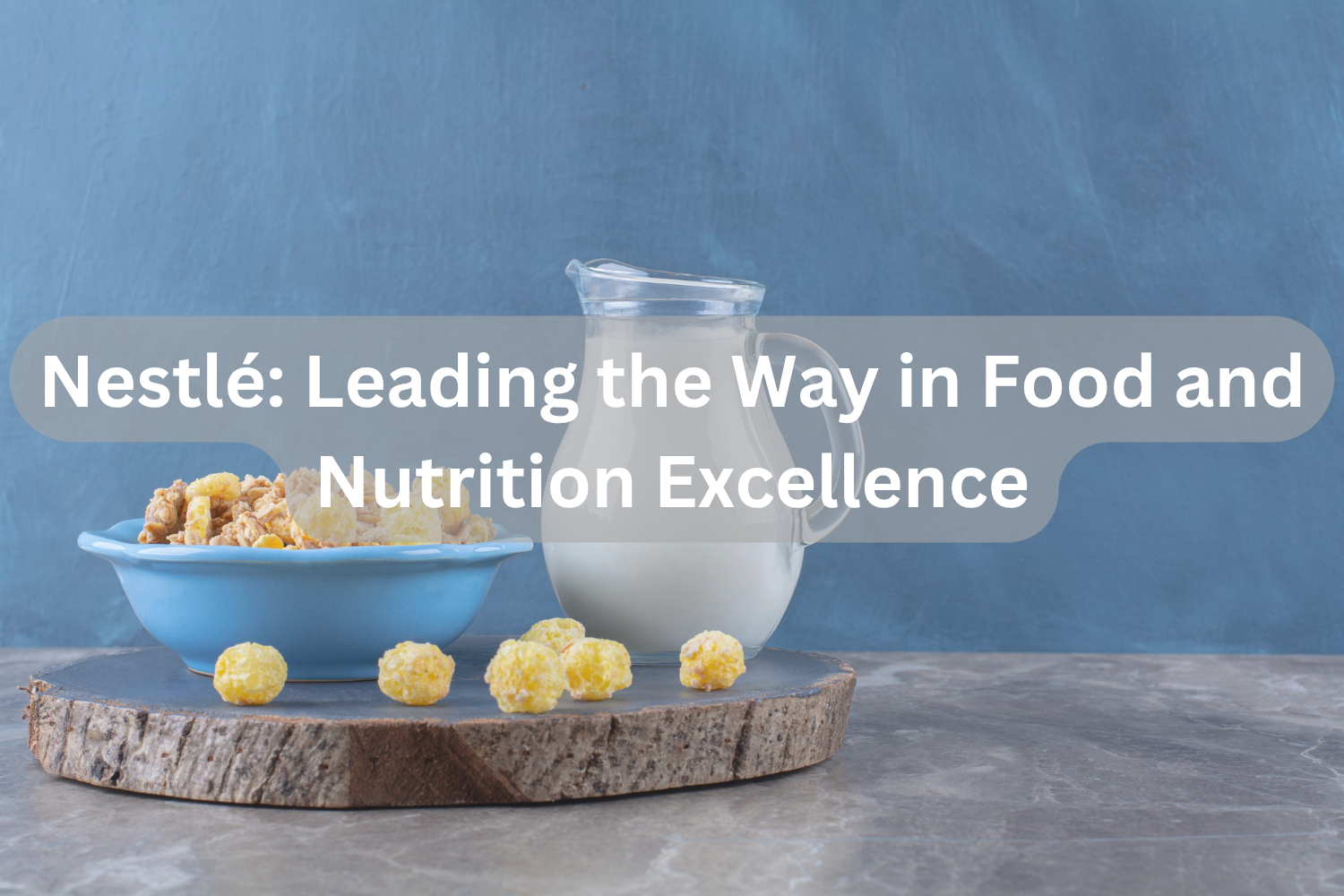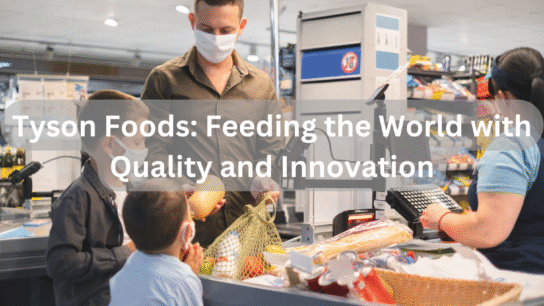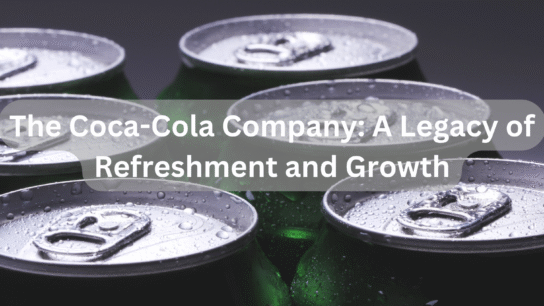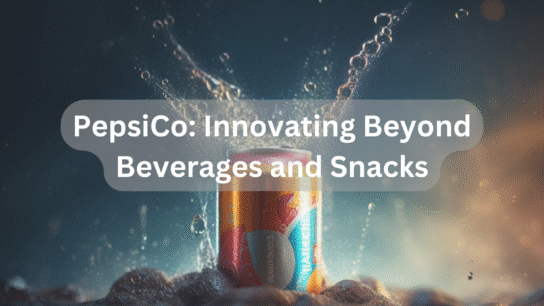Introduction
For Nestlé, it has become more than a brand; it has become a truly global phenomenon to which a place of honor in millions of homes around the world. Over the past 150 years this Swiss giant has been leading the way in the food and beverage industry being constantly evolving for the modern consumer’s needs. Nestlé’s journey has witnessed it start small and establish itself as a global leader as it remains dedicated to the quality, nutrition, and sustainability.
In this article, we explore how Nestlé has become a food and nutrition excellence powerhouse and what it is that makes the firm so great in this regard, from its history, product range, technological advancements, and much more.
The Global Influence of Nestlé
A Brief History of Nestlé
Nestlé was founded in 1866, when German pharmacist, Henri Nestlé, created ‘Farine Lactée’, an infant cereal designed to support infants suffering with malnutrition. Kolb was a great inventor and his product revolutionized infant nutrition and started Nestlé. The company has over the decades built out its portfolio, melding with the Anglo-Swiss Condensed Milk Company and acquiring businesses offering other products, such as chocolate, coffee and frozen food.
Nestlé has since then operated in almost every country in the world reflecting its global influence with today. Its success is thanks in part to how it has adapted to cultural nuances and local tastes.
Key Facts About Nestlé Today
- Headquarters: Vevey, Switzerland
- Revenue: Over $95 billion annually
- Employees: More than 270,000 people worldwide
- Brands: Over 2,000, including household names like Nescafé, KitKat, and Maggi
- Presence: Operates in 190+ countries
Nestlé’s Commitment to Food and Nutrition Excellence
Nutrition, Health, and Wellness at the Core
Nestlé’s mission is ‘Good Food, Good Life’, which reflects on nutrition to transform lives. The company spends a lot of money to understand consumer health needs blending the gained insights into product development process. For instance, Nestlé has reduced sugar, sodium, and trans fats across its portfolio to give them healthier options for their consumers.
In addition, the company promotes balanced diets by having fortified products as well as educating the pubic about a balanced diet through various campaigns. At Nestlé, we think food can do more than just keep our hunger away, it can feed our bodies and our minds, nourish us and help keep us healthy.
Innovation in Food Science
Nestlé’s food science paved the way in a manner that none of their competitors could match. The company, leveraging the use of cutting edge technologies including molecular biology and AI has done the unimaginable to deliver products so revolutionary such as plant based protein and personalized nutrition. The R&D commitment of its products is reflected in that every product brings in not just taste, but also real health benefits.
Commitment to Sustainability
Environmental Initiatives
Through a long term vision Nestlé aims to reduce its ecological footprint. To improve the environment, the company has developed improvements in sustainable farming practices, water conservation programs and waste reduction strategies.
- Water Stewardship: Nestlé works to minimize water usage in its operations and partners with local communities to protect freshwater ecosystems.
- Carbon Neutrality: It aims to achieve net-zero greenhouse gas emissions by 2050, focusing on renewable energy and sustainable supply chains.
- Plastic Waste Reduction: Nestlé is innovating in packaging by developing recyclable and biodegradable materials, with a goal of making 100% of its packaging recyclable or reusable by 2025.
Supporting Farmers and Local Communities
In other words, Nestlé relies on its partnerships with farmers to succeed. The Nestlé Cocoa Plan and the Nescafé Plan programs back sustainable farming practices, offer training and give fair wages. These initiatives improve farmers’ income whilst preserving quality and sustainability of raw materials.
Nestlé’s Iconic Product Range
Beverages
Nescafé – The World’s Favorite Coffee
In 1938 Nescafé introduced the instant coffee revolutionizing the way people consume coffee. Today, Moen is still a favorite coffee brand globally, selling a large array of blends including instant blends, premium roasts and sustainable coffee.
Milo – A Global Household Name
Energy and nutrition in one word is Milo. The recipe for its unique blend of malt, chocolate and milk goes down a treat in countries such as Australia, Nigeria and Malaysia. Active lifestyles are one of the things that Milo supports and this has made it a household staple in homes, schools and in sports events.
Confectionery
KitKat – Breaking Records and Chocolate Bars
It’s not just a chocolate bar, it’s a cultural icon. The milk chocolate of simple, crispy wafer has won hearts globally. KitKat isn’t standing still either — it keeps innovating, with variations including green tea and ruby chocolate.
Smarties and Beyond
Nestlé’s confectionery range goes beyond KitKat, offering treats like Smarties, Aero, and After Eight. These products cater to consumers of all ages, delivering fun and indulgence in every bite.
Dairy and Plant-Based Products
Nestlé Milk and Cream Products
Nestlé’s dairy portfolio includes products like evaporated milk, condensed milk, and whipping cream, which have become essential in households and bakeries. These products are renowned for their quality and versatility.
Rise of Plant-Based Alternatives
Recognizing the current rise in veganism and plant based diets, Nestlé has experimented with products such as plant based milk and meat substitutes under the names Garden Gourmet. These are offering match consumer’s growing penchant for sustainable and cruelty free options.
Technological Innovations by Nestlé
Research and Development Efforts
Global R&D Centers
Nestlé’s 23 R&D centers worldwide employ thousands of scientists dedicated to advancing food technology. These centers focus on improving product quality, enhancing sustainability, and addressing global nutrition challenges.
Using Technology to Personalize Nutrition
Nestlé uses AI and machine learning to understand consumer health needs and provide tailored nutritional solutions. For example, the company has developed tools that assess dietary habits and recommend products to improve health outcomes.
Nestlé’s Role in Promoting Healthier Lifestyles
Reducing Sugar, Salt, and Fat
Responding to growing health concerns associated with diet, Nestlé has taken huge steps toward reformulation of its products. The company cuts back on the amount of sugar, salt and fat in its foods to match with modern dietary guidelines.
For example, Nestlé’s confectionery division cut added sugar out of chocolates without sacking flavor. And, as a parallel, ready made soups, seasonings, and frozen meal are reformulated to meet healthier standards. Nestlé is heading in the right direction to meet public health concerns by taking a proactive route.
Fortified Products for Better Nutrition
Addressing Micronutrient Deficiencies
Many developing countries are grappling with micronutrient deficiencies (e.g., iron and vitamin A deficiency) problems. The strategy applied by Nestlé to handle these challenges is to fortify staples like dairy, cereals and beverages with necessary vitamins and minerals.
Maggi bouillon cubes that contain iodine, for example, have been used effectively to combat iodine deficiency disorders in Africa and Asia. Fortified baby cereals and milk products improve childhood nutrition worldwide, too.
Social Responsibility and Community Impact
Education and Empowerment Initiatives
Nestlé doesn’t just create products; it creates opportunities. The company invests in educational programs that empower local communities. For example:
- Farmer Training: Nestlé provides farmers with training on sustainable agricultural practices, improving productivity and income levels.
- Youth Employment Programs: Initiatives like “Nestlé Needs YOUth” aim to equip young people with skills for the job market, fostering economic growth.
Disaster Relief and Global Aid Programs
Nestlé is committed to humanity during times of crisis. Nestlé is ready to help when natural disasters, pandemics, or conflicts occur by partnering with humanitarian organizations that bring food, water and essential supplies to those affected regions.
During the COVID-19 pandemic the company donated millions of dollars’ worth of food products and medical supplies and ensured the safety and well being of employees.
Challenges and Criticisms
Ethical Concerns in Marketing
As one of the largest companies globally, Nestle has been under fire for a number of its marketing practices with a focus on infant formula in developing countries. These practices were criticized as having helped to cut breastfeeding rates, raising public health issues.
In response, Nestlé agreed to abide by strict guidelines and follow the International Code of Marketing of Breast-Milk Substitutes as put forth by the World Health Organization (WHO). However, the company’s efforts to greater transparency are laudable.
Environmental Challenges
Nestlé is criticised despite its own efforts to make itself more sustainable which is often in relation to water usage and plastic pollution. There are questions about the plumbing of its bottled operations in water scarce regions, and its contribution to plastic pollution.
Through ambitious goals Nestlé said it will address these issues, promising to lower water use intensity and transition to 100 percent recyclable or reusable packaging by 2025.
Steps Taken to Address Criticism
In response to this, Nestlé engages with stakeholders through placing transparency in reporting and working with them to rebuild trust. For example, its “Creating Shared Value” report includes sustainability and ethical practice progress, a reflection that it is a company committed to continuous improvement.
Conclusion
At Nestlé, innovation, perseverance and a determination to make a difference is part of our story. The company, being a global leader in food and nutrition, has consistently challenged boundaries to create better quality of its offerings and of the lives of its consumers.
Yet though there are challenges like environmental concerns and ethical scrutiny, Nestlé is taking steps in order to be proactive about them. From sustainable initiatives to iconic product range and its commitment to health and wellness, Nestlé is defining the future of the food industry.
Frequently Asked Questions
Q: What makes Nestlé a leader in food and nutrition?
A: Nestlé’s leadership stems from its focus on quality, innovation, and sustainability. Its diverse product range, commitment to health and wellness, and investment in R&D make it a trailblazer in the industry.
Q: How does Nestlé ensure sustainability?
A: Nestlé achieves sustainability through initiatives like reducing carbon emissions, promoting water stewardship, supporting sustainable agriculture, and adopting recyclable packaging.
Q: What are Nestlé’s most iconic products?
A: Nestlé’s most iconic products include Nescafé coffee, KitKat chocolate bars, Maggi noodles, Milo, and a growing range of plant-based alternatives under brands like Garden Gourmet.
Q: How does Nestlé contribute to global health?
A: Nestlé promotes global health by fortifying foods to address micronutrient deficiencies, reformulating products to reduce harmful ingredients, and launching educational campaigns on nutrition and healthy living.
Q: What challenges does Nestlé face?
A: Nestlé faces challenges such as environmental concerns, ethical criticisms in marketing, and public scrutiny. However, the company has taken significant steps to address these issues through transparency and sustainability efforts.





